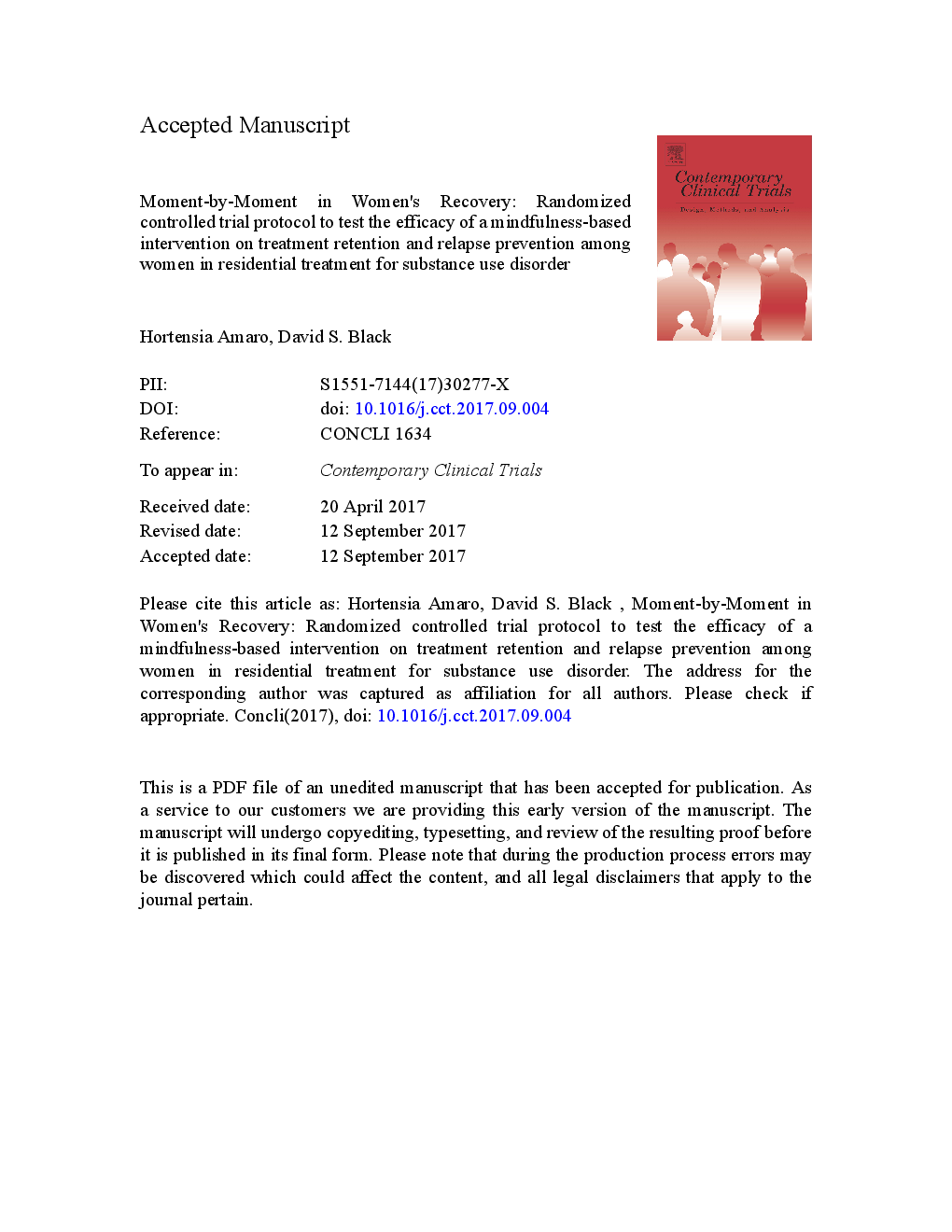ترجمه فارسی عنوان مقاله
لحظه به لحظه در بازیابی زنان: پروتکل تحقیق تصادفی کنترل شده برای آزمایش اثربخشی مداخله مبتنی بر ذهنیت در حفظ و پیشگیری از عود در زنان در درمان مسکن برای اختلال مصرف مواد
عنوان انگلیسی
Moment-by-Moment in Women's Recovery: Randomized controlled trial protocol to test the efficacy of a mindfulness-based intervention on treatment retention and relapse prevention among women in residential treatment for substance use disorder
| کد مقاله | سال انتشار | تعداد صفحات مقاله انگلیسی |
|---|---|---|
| 127322 | 2017 | 28 صفحه PDF |
منبع

Publisher : Elsevier - Science Direct (الزویر - ساینس دایرکت)
Journal : Contemporary Clinical Trials, Volume 62, November 2017, Pages 146-152
ترجمه کلمات کلیدی
ذهن آگاهی، اختلال مصرف مواد تسکین دهنده درمان مسکن زنان، نژاد / اقلیت های قومی،
کلمات کلیدی انگلیسی
Mindfulness; Substance use disorder; Relapse; Residential treatment; Women; Race/ethnic minorities;

